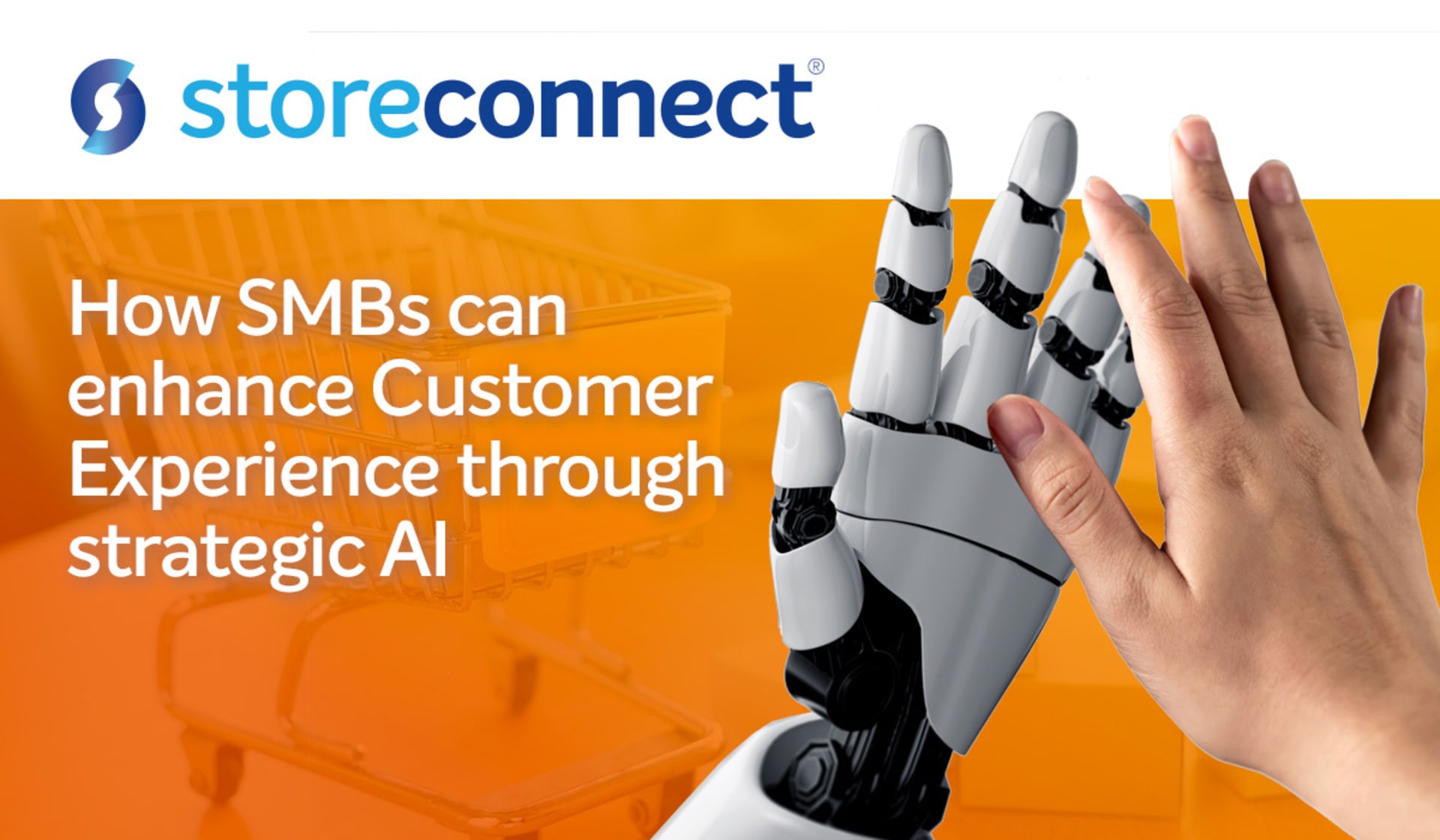
How SMBs Can Enhance Customer Experience Through Strategic AI
AI is ramping up the customer experience by creating personalised content by leveraging data-driven insights and adaptive algorithms.
AI is ramping up the customer experience by creating personalised content by leveraging data-driven insights and adaptive algorithms.
Generative Artificial Intelligence (AI) technology, like that used in chatbots, is quickly proving to be a critical investment for boosting annual revenue growth across all industries. The retail sector could enjoy substantial profit increases of $400 billion to $660 billion annually. About 75% of generative AI’s value comes from its benefits in customer operations, marketing, sales, software engineering, and research and development (R&D). AI technologies are capable of automating a growing number of tasks in the workplace that typically take up to 60% to 70% of an average employee’s time. Generative AI’s beneficial effect on overall productivity could contribute the equivalent of $2.6 trillion to $4.4 trillion to the global economy. A Deloitte/Stanford University study found that only 25% of small- and medium-sized businesses (SMBs) currently use AI in chatbots, predictive analytics, and marketing automation. By comparison, larger corporations have a much higher AI adoption rate of 40%. It is in the best interest of SMBs to accelerate their AI-implementation timeline in order to reap the substantial benefits of AI and keep up with the titans of eCommerce.
Personalising the Customer Experience
AI is ramping up the customer experience by creating personalised content through machine learning by leveraging data-driven insights and adaptive algorithms. It starts by collecting vast amounts of data from various sources, such as user interactions, preferences, online patterns, and contextual information. This data serves as the foundation for building a comprehensive understanding of each individual consumer. AI systems can make predictions about consumer preferences and behaviours, which in turn helps tailor experiences to meet their specific needs. AI also enables synchronous personalisation. For instance, eCommerce platforms can adjust product recommendations based on a consumer’s immediate browsing activity.
Natural language processing (NLP) techniques enable AI to understand and respond to user inquiries in a more human-like manner, enhancing customer service interactions. As these systems continuously learn from new data, they adapt and refine their suggestions, resulting in increasingly accurate and personalised experiences over time.
AI chatbots are the new online sales associates asking questions to help customers navigate the virtual racks and shelves to find just what they are looking for, 24/7 and in multiple languages — a veritable concierge available for each individual customer. By analysing browsing and purchase histories, AI can offer customised input and better understand each customer’s unique needs, something 66% of consumers expect while shopping, according to Salesforce.
AI, the Marketing Genius
AI is a natural at marketing and can significantly increase revenue and customer retention by analysing customer interactions and buying habits. Using omnichannel marketing strategies and automating product recommendations, AI can generate more sales. Loyalty discount programs and automated follow-up inquiries regarding abandoned carts encourage customers to keep coming back. Customer segmentation strategies help retailers make data-driven decisions regarding product development, pricing, in-app recommendations, and marketing methods. AI can increase customer engagement through more effective multimedia marketing campaigns and content creation by analysing real-time customer data, including social media activity and search queries.
AI in the Virtual World
Augmented Reality(AR) technology uses digital visual elements, sound, and other sensory stimuli, overlaying them onto the physical world using a portion of the user’s landscape to enhance the customer buying experience, for example, trying on a virtual pair of sunglasses, or seeing what a sofa might look like in the customer’s own living room. AR is a pricy investment, anywhere from $7,000 to $250,000, depending on its level of complexity, but it pays dividends. Customers are willing to spend more and tend to make more spontaneous purchases from brands using AR. According to a survey, 72% of consumers said they purchased items they had not originally planned to buy, and 68% said they spent more with a retailer when shopping using AR. Amazingly, merchants can experience conversion rates of around 250% by incorporating augmented reality technology.
Maximum Efficiency
SMBs can optimise their operations with AI’s most practical applications that automate routine tasks such as processing orders, checkouts, returns, payment processing, inventory management, and essential customer support. Employees can make better use of their time and the company’s assets and focus on more profitable projects that benefit the business beyond day-to-day operations. With AI’s capacity to handle a huge percentage of customers’ direct needs, SMBs can stay ahead of consumer expectations. In Salesforce’s “State of the Connected Customer” report, they found that 80% of customers now consider the experience a company provides to be just as important as the products and services it sells.
Enterprise-Level Solutions
Incorporating AI into any business requires an evaluation of its unique needs and available resources. Large eCommerce enterprises have access to massive quantities of data, keeping them at the forefront of the AI revolution, able to absorb immense amounts of information to more accurately predict consumer behaviour. Using enterprise-level solutions, SMBs can rely on one unified platform that brings together all of their data and empowers them with access to sophisticated AI algorithms despite their limited datasets.
Maximising the enormous benefits of AI for SMBs requires connecting with platforms that already have access to a considerable amount of data. A consolidated and scalable enterprise platform amplifies data-driven decision-making and enables streamlined integration of AI analytics into a company’s daily operations. SMBs must maintain agility to keep up with the ever-changing demands of the 21st-century consumer. By using AI to elevate the customer experience with more personalised service, customised support, and more targeted and dynamic media engagement, SMBs can easily meet and even exceed the expectations of their customers.
